Ukraine elections: Pro-Western parties set for victory
- Published
- comments
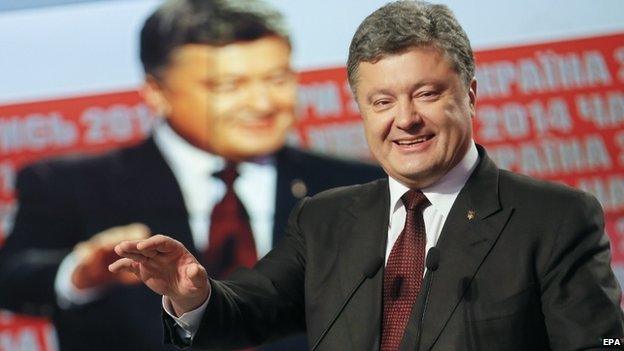
Petro Poroshenko says he hopes he can form a unity government within 10 days
Ukraine's president and prime minister are set to publish a draft coalition agreement, after an apparently sweeping victory for pro-Western parties in Sunday's parliamentary elections.
With half the vote counted, President Petro Poroshenko's bloc and the party of Arseniy Yatseniuk were neck-and-neck with more than 21% of the vote each.
Both men said they expected other parties to join their coalition talks.
There was no voting in eastern areas controlled by pro-Russian separatists.
As a result, a number of parliamentary seats in the Donetsk and Luhansk regions will remain vacant, as will those for Crimea, which was annexed by Russia in March.
The separatist rebels plan to hold their own elections next Sunday.
The legislative polls were the first since pro-Russian former President, Viktor Yanukovych, was driven from power in February after he refused to sign an agreement on closer ties with the European Union.
'Path to Europe'
With 50.08% of ballots for party lists counted, Mr Poroshenko's bloc - comprising his own Solidarity Party and Udar, led by former boxing champion Vitali Klitschko - had 21.45% of the vote.
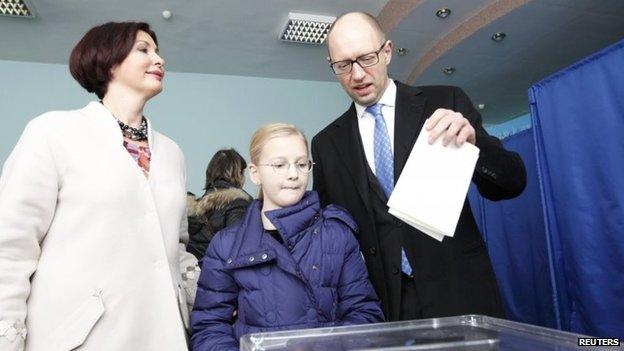
Prime Minister Arseniy Yatseniuk's bloc could be one of Mr Poroshenko's main partners
But the People's Front of the president's ally, Mr Yatseniuk, was fractionally ahead with 21.61%.
Self Help, based in western Ukraine and led by Lviv mayor Andriy Sadovyi, was third with 11.1%, followed by the Opposition Bloc of Mr Yanukovych's former Energy Minister Yuri Boiko on 9.82%.

Analysis: David Stern, BBC News, Kiev
If results hold, Ukraine's parliamentary elections could potentially spell an electoral earthquake - a second revolution, only one that has taken place at the ballot box.
For the first time in country's history, a broad pro-European, pro-reform coalition seems to be in the makings.
Just as significantly, two groupings that have long dominated the political landscape appear to have been considerably weakened - the Communist Party, which for the first time may not enter parliament, and the remnants of the Party of Regions, which look set to have a much smaller role in the new legislature.
In the end, President Poroshenko may enjoy a two-thirds "super majority", with which he will be able to enact his long-promised reform programme with little resistance.
The question, then, will be what Mr Poroshenko would manage to do should such power be delivered to him.

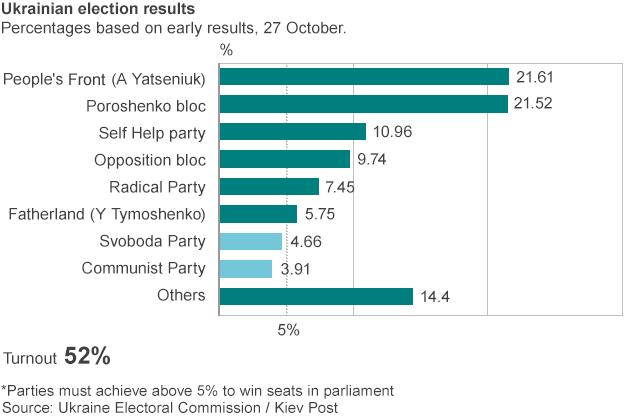
The full party-list results expected later on Monday will cover only 225 of the 450 seats.
"More than three-quarters of voters who took part in the polls gave strong and irreversible backing to Ukraine's path to Europe," Mr Poroshenko told a news conference.
"We must create... the best government in Ukraine because no other government will cope with the challenges that the country is facing today," he added.
The president held preliminary power-sharing talks with Prime Minister Yatseniuk on Monday, Reuters news agency reported.
At a meeting with election observers, Mr Yatseniuk said: "The main task is to quickly form a pro-European coalition for carrying out agreements with the EU."
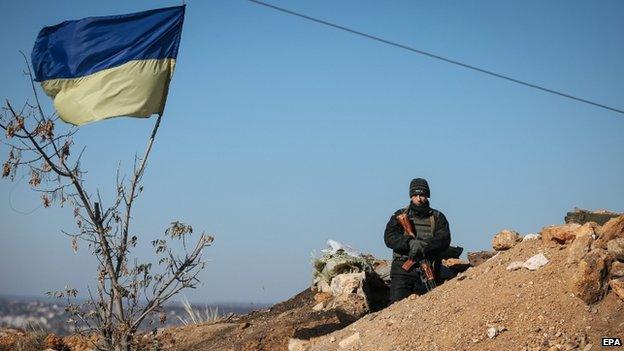
Ukrainian soldiers have been battling pro-Russian rebels in the east for months
'Important milestone'
European Commission President Jose Manuel Barroso said, external the result was a "victory of democracy" and a pro-European agenda.
International observers from the Organization for Security and Co-operation in Europe said the election had "largely upheld democratic commitments" and had "offered voters real choice".
Russian Foreign Minister Sergei Lavrov told RIA news agency that his country was likely to recognise the poll.
"It is very important for us that Ukraine finally will have authorities which do not fight one another, do not drag Ukraine to the West or to the East but which will deal with the real problems facing the country," he is quoted as saying.
US President Barack Obama also praised the election as "another important milestone in Ukraine's democratic development".
Turnout on Sunday was more than 52%. However, it varied widely between the east and west of the country, with some three million people in separatist-controlled areas in Donetsk and Luhansk unable to vote.
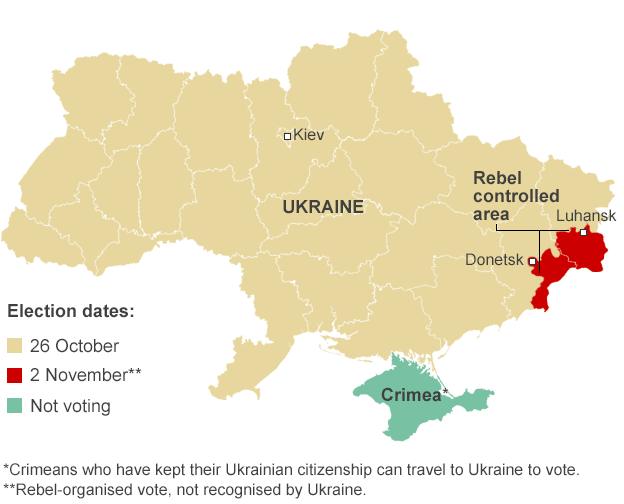
More than 900 observers from 43 countries monitored the polls.
Anger in eastern Ukraine at the overthrow of Mr Yanukovych turned to unrest with pro-Russian separatists seizing government buildings and beginning an insurgency in April.
At least 3,700 people have been killed since then, 300 of them in sporadic clashes between the Ukrainian army and separatists around the city of Donetsk since a truce was agreed on 5 September.
On Monday morning, a government-held military base in the Avdiivka area, on the outskirts of Donetsk, was hit by rockets. Shelling also disrupted vote counting in Volnovakha, 60km (40 miles) to the south.